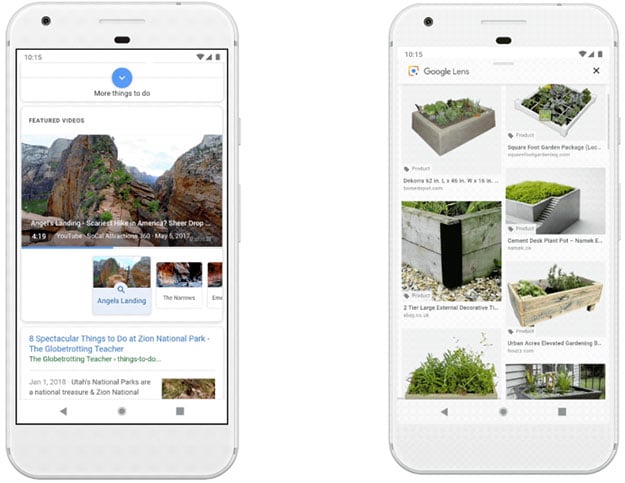Google Search Overhauled With Google Lens, Discovery Tools And Media-Heavy Results

Google has been the sultan of search for a very long time now, and through the years it has constantly been tweaking things, adding features, and generally just looking to stay in front of the pack. Most would argue it's done exactly that—'Google' is basically a verb in modern vernacular. To keep things going in that direction, Google is introducing a bunch of new and improved search features, with a particular emphasis on visual content, as it looks to towards the next two decades of search.
While most of us take the underlying technology for granted, there are some interesting things at play. One of them is Google continually leveraging advancements in computer vision.
"We model hundreds of millions of fine-grained concepts for every image and video that we have in our index. For example, an image of a tiger might generate concepts like 'feline', 'animal', or 'big cat'. This lets us identify a picture by looking at its pixels, without needing to be told by the words on a page," Google explains.
Going forward, Google is pushing what it calls three fundamental shifts in how we think about search. One of them is a shift from answers to journeys, part of which entails improving Google Images.
"When you come to Google Images for help on a task, the page where an image lives is important. Whatever page you visit should help you take the next step in what you’re trying to do. Also, with many visual searches, there may not be one right answer, so you want to scan a lot of images and information before you find what you need," Google said.
The other two shifts include going from queries to providing a query-less way to get information, and from text to a more visual way of finding information. It's no surprise that Google is using advancements in artificial technology to underpin these fundamental shifts. Google also points out that we've now reached a point where neural networks can help the company take major leaps forward from understanding words to understanding concepts.
Though not specifically stated, one of Google's presumed goal is to make its upcoming changes seamless, and of course intuitive. Most of the heavy lifting is done behind the scenes. For the end user, however, Google Search should be a richer, more relevant experience, based on what Google shared in a blog post.
"It wasn’t long ago that if you visited an image’s web page, it might be hard to find the specific image you were looking for when you got there. We now prioritize sites where the image is central to the page, and higher up on the page. So if you’re looking to buy a specific pair of shoes, a product page dedicated to that pair of shoes will be prioritized above, say, a category page showing a range of shoe styles," Google says.
"Starting this week, we’ll also show more context around images, including captions that show you the title of the webpage where each image is published. This is critical to help you understand the page behind the image. We’ll also suggest related search terms at the top of the page for more guidance," Google adds.
This also means that Google Search is going to look a little different. Google has already rolled the revamped look on mobile, and is now starting to bring it to desktops.

